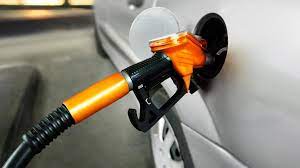The dangers of overfilling your gas tank

Over the years, there have been many instances where we have heard or read about an individual overfilling their vehicle’s gas tank. While it may seem harmless to fill up to the brim to maximize the distance you can travel before needing to refill, overfilling your gas tank can lead to serious and costly consequences that are often overlooked.
In this article, we will discuss some of the dangers associated with overfilling your vehicle’s gas tank and why it is crucial for you to avoid this seemingly innocent mistake.
1. Damage to the Evaporative Emissions System
The evaporative emissions system (EVAP) in modern vehicles is designed to prevent harmful fuel vapors from escaping into the environment. This system includes a charcoal canister that absorbs and stores fuel vapors, which are later burned off during regular engine operation. Overfilling your gas tank can cause fuel to enter this canister, saturating its charcoal component and rendering it ineffective. This may trigger the “check engine” light and lead to costly repairs.
2. Increased Environmental Pollution
When gasoline expands due to temperature fluctuations, liquid gasoline forces its way out of the fuel tank vent, increasing hydrocarbon emissions. As mentioned earlier, these release harmful volatile organic compounds (VOCs) into the atmosphere, contributing to air pollution and smog formation.
3. Decreased Fuel Efficiency
Contrary to popular belief, overfilling your gas tank may actually lead to decreased fuel efficiency in some cases. This is because it increases the likelihood of experiencing vapor lock – a condition where gasoline fumes impede proper fuel flow within the engine. Vapor lock can inhibit engine performance and decrease overall miles per gallon.
4. Risk of a Spill
Overfilled fuel tanks increase the risk of fuel spillage at refueling stations. The gasoline may spill onto you or around the pump area, creating a dangerous fire hazard. It also poses a risk to the environment, as even small amounts of gas can contaminate water sources and have negative consequences on aquatic life.
5. Increased Chances of an Accident
Spilled fuel around your vehicle’s tires may create slippery conditions, increasing the risk of a skid or accident when you pull away from the gas station. Additionally, overfilling may lead to an uneven distribution of weight inside the vehicle, affecting handling and stability.
To sum up, overfilling your gas tank is a dangerous practice that can harm both your vehicle’s performance and the environment. The best practice is to stop filling your tank when the fuel nozzle automatically clicks off as it is designed to do so at an optimal point. Adhering to this guideline will not only save you money on repairs but will also help ensure a safer, cleaner environment for us all.






